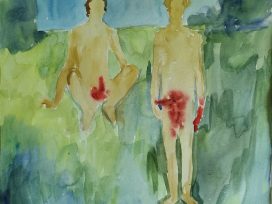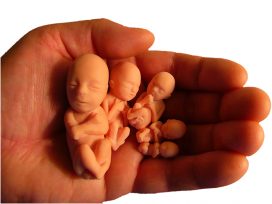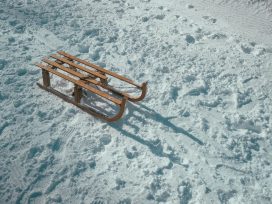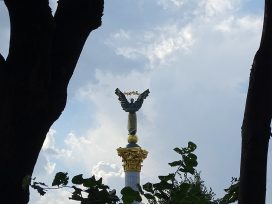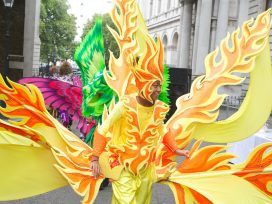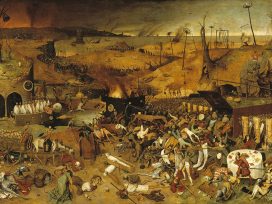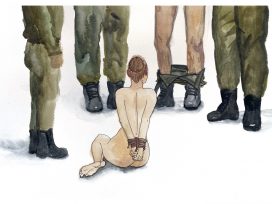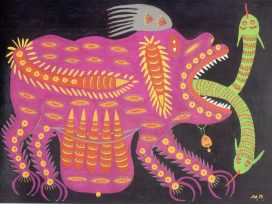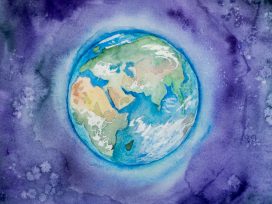2022 is a year of hurt and loss, but also of fierce resistance. Amid war and blood-soaked revolutions, masses have risen up to demand dignity, freedom and their right to form their own destiny. Here are your favourite articles from 2022 – and a few pieces our editors think you’ll love.
Olena Myhaskho is the editor-in-chief of Kharkiv-based Gwara Media, one of the newest partner journals in the Eurozine network. During her short stay with us in Vienna in July, she felt bewildered by the contrast of the Kaiser city’s consumerist cheer, and the reality of bombardment, displacement and scarcity that has characterized life in Ukraine since February. Her article reviews the initial experience of women in war.
She did not only make it to the top of this year’s reads, but is among our most-read authors from the past 5 years.
It may seem counterintuitive, but according to Jennifer Holland’s research, the anti-abortion movement in the US aren’t really rooted in religious institutions. They are, however, staunchly white movements, claiming the legacy of the abolition of slavery and the 1960s civil rights movement for themselves, while caring little for the reproductive rights of people of colour.
Public Seminar‘s editor, Claire Potter interviewed Jennifer Holland about her historical inquiry on the occasion of the US Supreme Court repealing Roe v Wade, pushing a decades-long conservative agenda through the finish line.
Natalija Jakubova, a one-time fellow of the Institute for Human Sciences, analyzed the means of propaganda and self-deception many Russians use to legitimize, or sometimes simply to deny the undeniable brutality of their country’s aggression against their neighbour, whom they openly consider their kin.
From youtubers propelling lies to propaganda aimed directly at children, the Russian state tries to infiltrate every sphere of publicity and spares nobody. To tackle the rhetorical offensive, Ukrainians use their famed humour, which leaves the attackers stunned. But the war is no joke, and the reality of torture, rape and massacre weighs down on the survivors.
Your choice
Reader favourites from 2022
White people problems! Iván Kalmár’s article about the problem of being eastern in the centre of Europe joins a larger conversation with Mykola Riabchuk, Enda O’Doherty, Ferenc Laczó and many more authors of Eurozine. As deep as this conversation is, the problem of Eastern Europe is much younger than it seems at first sight, and is deeply intertwined with racial politics and race theory itself.
Readers will be delighted to learn that Eurozine, in collaboration with the Budapest-based media studies department ELTE Média, launched a seminar this year specifically on the theories of the East within Europe, also putting this article on the syllabus. We’ll share more next year from the perspectives of the attending international students, and the class goes on for another term in 2023, focusing this time specifically on the concepts of whiteness in the context of easternness.
Samuel Abrahám is one of Eurozine’s founding fathers, and the editor of our Slovakian partner journal Kritika&Kontext. This time he wrote for another Eurozine partner journal, New Eastern Europe, drawing a comparison between today’s Russian autocracy and the Soviet leadership of 1968.
He notes that the three key actors of this conflict seem to be imagining themselves in entirely separate time dimensions: Ukraine’s time has sped up incredibly, so much so that every minute counts and Zelensky himself lives on borrowed time from the very beginning. While the West count in weeks and months, in Russia the clock ticks in long spans – in years, or even the lifetime of the dictator.
Ukraine and its discontents
Independence Day 2022
For a feminist as influential and as radically transformative as Claudia Jones, it’s surprising that all we know of her life, has been brought to light by a process of excavation. Lola Olufemi writes:
“A revolutionary life often involves risks to personal freedom and safety. Jones’ imprisonment and the long-lasting connections she forged with other political prisoners illustrate the consequences of principled resistance. ”
And some personal favourites
Each year we like to round out the top picks of our readers with a few articles which we think deserve even more love than they have gotten.
Of revolutions, present and past: Kian Tajbakhsh writes of Iran’s feminist uprising, while Paulius Vijeikis surveys what the people of Belarus think of their recent uprising, put down with incredible violence but ongoing in so many ways every day.
Golineh Atai argues that governments in the West have trusted the Iranian reformers for far too long, misunderstanding the nature of power in the Islamic Republic.
Edith Kuiper recounts the history of female economists and argues for taking their legacy more seriously, especially in light of the current economic crisis.
Two sociologists walk into a bar: our returning champion Péter Krekó interviewed Alan Sokal on how the postmodern turn destabilized meaning, and how politics tends to abuse this structural change.
Hypercapitalism gone rogue: Magdalena Taube and Krystian Woznicki discuss the billionaires’ obsession with space exploration, as they refuse to address the real-life problems they cause here on Earth.
Capturing the Zeitgeist
Full-scale war never disappeared from global politics, merely Europe and North America could afford to pretend it was gone. John Keane explains how the nature of war has changed along with, and often directly by media.
And in a heartbreaking tableau, Kateryna Botanova’s article essentially works as an online exhibition of Ukrainian art in war – the works being rescued from war, the ones conjured by the war, and the ones the conflict has prevented. Botanova provides insight into the deeply gendered experience of bombardment, where care for others is an organizing principle both in hiding and out on the fronts.
Defined by silence
The Ukrainian art that was destroyed – and the art that never happened
All of these articles deal with pain and struggle. An overarching theme across them is a fervent dedication to reclaim autonomy, freedom and safety, driving people to fight across many countries and continents. This is the third year in the grip of crises, and we cannot responsibly predict when the lean years would be over. What we can do, however, is help you make sense of this battered present, and offer perspectives for a future that we all have to shape for it to improve.
We, the Eurozine team hope you get to celebrate and be with your loved ones this holiday season. We wish you peace, freedom and insight for the new year with this overview. Thank you for staying with us through thick and thin, and do be assured that we are determined to do just the same for our readers.
Published 23 December 2022
Original in English
Newsletter
Subscribe to know what’s worth thinking about.
Related Articles
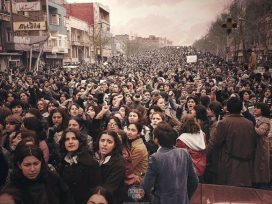
Bang on your pots and pans
Topical: Women’s Day Reads
One year in and the pandemic has hit women particularly hard: decades’ of advancement in the workplace and academia are under threat; domestic violence has skyrocketed. And yet, in institutional politics, women seem to be growing in numbers and influence. This year’s International Women’s Day ‘challenge’ is one of recovery.
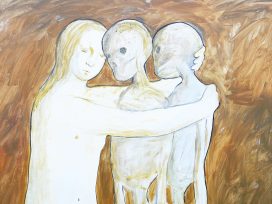
The gift of reflection
Topical: 2024 reads
Our choice of Eurozine articles and talk show episodes from 2024 reflects, both analytically and personally, on shifting cultural landscapes: from escalations of violence, invasive technologies and media sustainability to gut feelings and life-changing moments.
